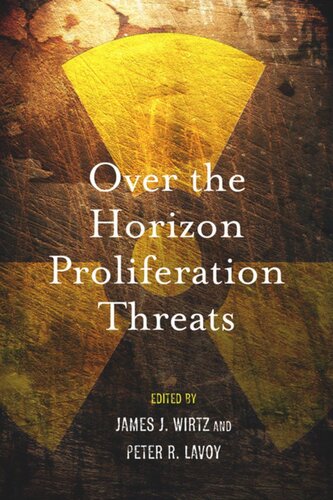

Most ebook files are in PDF format, so you can easily read them using various software such as Foxit Reader or directly on the Google Chrome browser.
Some ebook files are released by publishers in other formats such as .awz, .mobi, .epub, .fb2, etc. You may need to install specific software to read these formats on mobile/PC, such as Calibre.
Please read the tutorial at this link: https://ebookbell.com/faq
We offer FREE conversion to the popular formats you request; however, this may take some time. Therefore, right after payment, please email us, and we will try to provide the service as quickly as possible.
For some exceptional file formats or broken links (if any), please refrain from opening any disputes. Instead, email us first, and we will try to assist within a maximum of 6 hours.
EbookBell Team

4.7
106 reviewsIn every decade of the nuclear era, one or two states have developed nuclear weapons despite the international community's opposition to proliferation. In the coming years, the breakdown of security arrangements, especially in the Middle East and Northeast Asia, could drive additional countries to seek their own nuclear, biological, or chemical (NBC) weapons and missiles. This likely would produce greater instability, more insecure states, and further proliferation. Are there steps concerned countries can take to anticipate, prevent, or dissuade the next generation of proliferators? Are there countries that might reassess their decision to forgo a nuclear arsenal?
This volume brings together top international security experts to examine the issues affecting a dozen or so countries' nuclear weapons policies over the next decade. In Part I, National Decisions in Perspective, the work describes the domestic political consideration and international pressures that shape national nuclear policies of several key states. In Part II, Fostering Nonproliferation, the contributors discuss the factors that shape the future motivations and capabilities of various states to acquire nuclear weapons, and assess what the world community can do to counter this process. The future utility of bilateral and multilateral security assurances, treaty-based nonproliferation regimes, and other policy instruments are covered thoroughly.